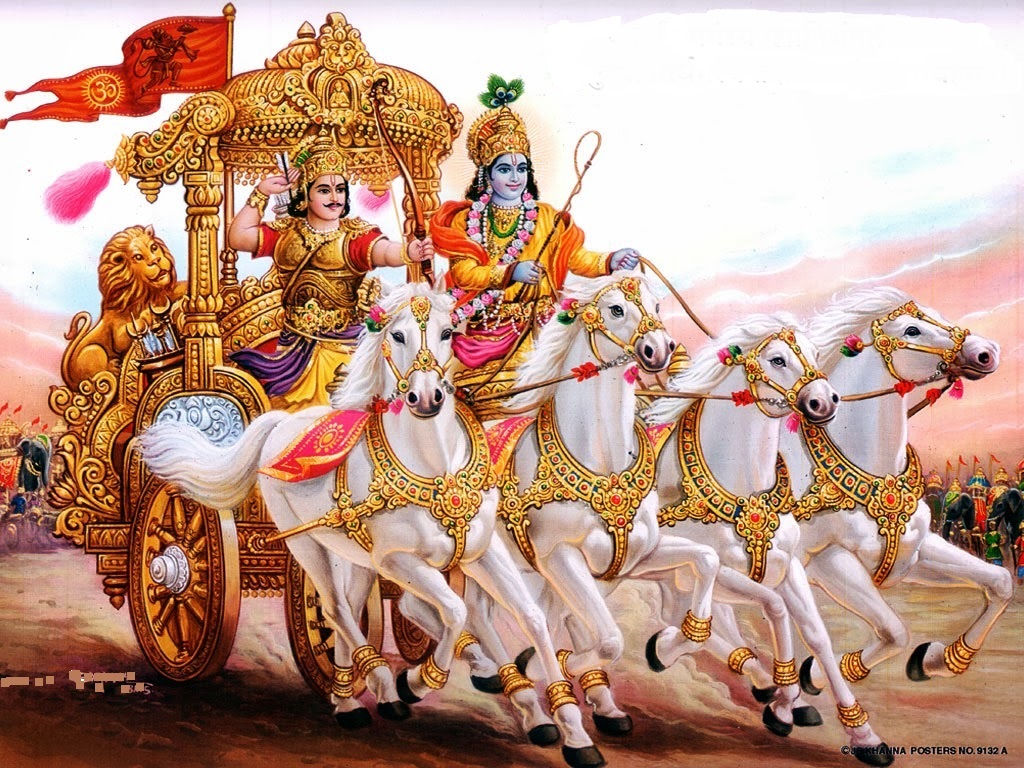The Bhagavadgita – A Synthesis of Thought and Action : 3. Swami Krishnananda
=========================================================================
============================================================================
Wednesday, April 05, 2022. 20:00.
(Spoken on Gita Jayanti in 1973)
Post-3.
==========================================================================
It may be reiterated that the Bhagavadgita is not such a gospel of any religion as to be consecrated in a puja room or only for certain occasions of festivity, ceremony, etc. It is our vade mecum, our pocket guide for every problem, even in our prosaic earthly life – maybe in an office or a factory or the fields of our vocations. If the Bhagavadgita cannot give us piece of mind, it would mean that the Bhagavadgita has not helped us, which would also mean that we have not understood it. We cannot read all eighteen chapters of the Gita and then start crying, cursing and complaining. It is to prevent this erroneous, ugly attitude of the human mind that this gospel has been introduced to us.
Every verse of the Gita points to a particular corner of human life and tries to throw a floodlight into that corner. While our activities are manifold, they can be classified under certain primary heads or groups so that a study of these principle heads of our activities would be tantamount to a study of the entire life of every one of us. As I pointed out a little earlier, we have to think before we act. It would not be proper for us to act first and repentantly think later on. Most of us try to go headlong into an activity without proper thought being bestowed upon the nature of the activity before us. We are emotional too much, sentimental beyond a permissible degree, and that is why we act first and think afterwards. Generally, the thought that comes after the action is one of grief, repentance, melancholy, and intense unhappiness. “Oh, I have made a mistake!” But why did we rush into activity so hurriedly without considering the pros and cons of the action? This requires self-control. Unless we have a control over our own nature, we cannot restrain our emotions; and unless the emotions are restrained, thought cannot precede action because we must have time to think, but the emotions will not allow us any time to think even once. They start speaking and acting suddenly, at the spur of the moment, without laying the foundation of proper thought over the issue that has arisen.
The Upanishads are the basic building bricks of the basis of the structure of thought to precede human action in general. I do not mean any particular action specifically. Human action in general, whatever be its nature, is to be preceded by a type of thought, which is beautifully represented in the Upanishads. We cannot go into the vast details of this scientific subject in the few minutes available to us here, but suffice it to say that while the thoughts of the Upanishads lay the foundation for a universal approach to things, the Bhagavadgita gospel brings into high relief the daily operation of this thought in every nook and corner of the world through each and every action of the individual.
The problem of Arjuna was a sentimental and an emotional one, sentiment and emotion having overpowered his understanding, preventing him from thinking in the right direction and urging him to take a decision contrary to what was justifiable under the circumstances. How are we to decide upon the yes or no of an action? Is an action right or wrong; how are we to know? This is the question that the Bhagavadgita tries to answer. Whenever we embark upon a line of action, we are likely to think that it is the right course. Each one thinks that he or she is right and others who oppose that line of action are wrong. Now, is this a permissible course of thinking? Can I say that whatever I do is right and anything contrary is wrong? If each one starts saying this, who is right and who is wrong?






Comments